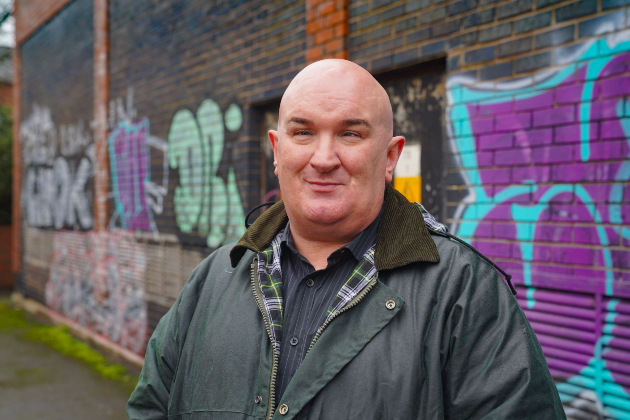With 30 years’ experience of working in health care, Mark Barclay, a health care assistant (HCA) in haematology at Belfast City Hospital, was determined not to let challenges in the workplace get the better of him.
When he applied for an internal role, Mark, a registered-blind person, found the application process was designed specifically for able-bodied people. “Nothing worked for me from application through to clearance, and actually getting the job,” he says.
He sought advice from his former union, but it was thought that he wouldn’t win a case, so Mark decided to represent himself. He submitted a formal complaint and won his case. Now the workplace recruitment process is more inclusive. The application process now mentions that if any assistance is required, the HR team are happy to facilitate.
“I was left high and dry, but my attitude was ‘watch me do this’,” Mark says. “At that point I wasn’t even aware that HCAs could join the RCN, but I have since joined and soon found myself needing support again.”
Pandemic impact
As the COVID-19 pandemic hit, Mark faced another challenge. With personal protective equipment essential to his working life, he found that with his condition, he was unable to use visors or goggles provided.
I worked with my RCN rep and fought tooth and nail to get back to work
“My employer didn’t know what to do with me, so they told me to shield,” he explains. “I worked with my RCN rep and fought tooth and nail to get back to work. I was eventually successful.”
This inspired Mark to start the process to become an RCN rep. “I knew I could represent someone, as I’ve already represented myself,” he says.
The training journey
As Mark’s rep training started during the pandemic, it was done differently to how it had been done previously. Rather than in-person classes, learning and development was delivered using Microsoft Teams and self-directed learning. Mark says this method worked well for him.
“By working remotely and independently, I can go at my own pace, which I prefer,” he says.
After completing the foundation training, Mark focused on the RCN steward’s module, which covers everything from critiquing policy, to boundaries and member expectations.
“This was tough going but made sense to me as I’d been through the process of representing myself already,” he says.
Mark has the support of his employer and works closely with another rep on his ward, and now, having completed his training, says he believes that being a rep creates a voice for change. “It's good to be that voice for somebody who's maybe not as outspoken as me. I know when and how to negotiate and when a negotiation perhaps needs more argument,” he says.
NSWs make great reps
It’s the friendly warmth and compassion that so many nursing support workers have as character traits that Mark thinks can fuel the fire to become a rep.
“It’s everyone’s job to protect each other, especially now, when health care is on its knees. And you can be part of this.
“We need constructive, powerful voices for change and to be able to affect that change. I’ve already seen first-hand how my one voice can help do this.”
He adds: “Imagine a choir of voices of nursing support workers and registered nurses, all coming together to create that universal message.”
We need constructive, powerful voices for change
Mark is concerned that pressure on the current workforce means there may be fewer nursing staff in the future and says that being a rep right now means that issues such as fair pay and safe staffing can be heard.
“There’s no incentive to work in health care at the moment,” he says. “We can provide beds, but there’s nobody to staff them so it’s more important than ever that we speak out.”








